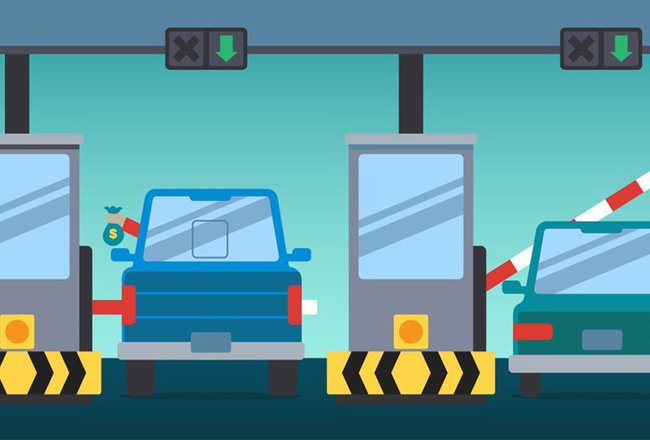CT governor’s transportation plan: Tolls on I-95, I-84 and I-684
Gov. Ned Lamont will unveil the details of CT2030, his 10-year, $21 million plan to improve the state”™s transportation system, at a news conference today in Hartford.
 As previously reported, CT2030 revises downward the number of toll gantries from Lamont”™s original 50 to 14, many of them within Fairfield County. Five are listed along I-95, one along the Merritt Parkway in Norwalk, three along I-84 in various parts of the state, and one on I-684.
As previously reported, CT2030 revises downward the number of toll gantries from Lamont”™s original 50 to 14, many of them within Fairfield County. Five are listed along I-95, one along the Merritt Parkway in Norwalk, three along I-84 in various parts of the state, and one on I-684.
Projects to be financed by tolls ”“ and their construction cost ”“ are as follows:
- I-95 over Metro-North in Stamford. Cost: $20 million to $25 million.
- I-95 in Norwalk and Westport. Cost: $70 million to $130 million.
- I-95 West Haven, reconstructing Exit 43 and replace bridge over Metro-North. Cost $65 million to $90 million.
- I-95 East Lyme, interchange improvements and bridge replacement. Cost: $140 million to $220 million.
- I-95 New London and Groton, Gold Star bridge reconstruction. Cost: $300 million to $415 million.
- I-84 Newtown, reconstruction of Rochambeau Bridge over the Housatonic River. Cost: $70 million to $110 million.
- I-84 Waterbury, reinforcing the mixmaster. $235 million to $260 million.
- I-84 West Hartford, replacing crossing over Berkshire Road. Cost $75 million to $110 million.
- I-91 Hartford, Charter Oak Bridge improvements. Cost: $300 million to $330 million.
- I-395 Plainfield, reconstruction bridge over Moosup River. Cost: $15 million to $20 million.
- Route 8 Waterbury, strengthen bridges south of Mixmaster. Cost: $20 million to $35 million.
- Route 9 Middletown, elevate highway and remove traffic lights. $90 million to $160 million.
- I-684 Greenwich, bridge over Byram River. Cost: $12.9 million.
- Route 15 Norwalk, improve connections between Route 15 and Route 7. Cost: $160 million to $200 million.
“Rather than delay construction and burden CT taxpayers with the total cost of improvements plus interest,” the proposal says, “several CT 2030 projects will be funded by the implementation of a new and modest user-fee program beginning in 2023.”
The “user fees” ”“ tolls ”“ will also be used to gain access to low-interest loans from the U.S. Department of Transportation.
Connecticut drivers with a transponder would pay 40 to 80 cents, medium-size trucks would pay $1 to $2, and heavy trucks would pay $2.80 to $5.60.
“Within a 24-hour period, any vehicle equipped with a transponder will not pay more than one round-trip user fee per gantry,” according to the proposal.
The CT2030 plan further assumes that 38% of the toll revenue would be generated by out-of-state vehicles.
As for the state”™s rail system, the plan calls for about $2 billion in track improvements and new cars for Metro-North, as well as modernizing signals. Implementation of those and other measures will mean that “trains will run approximately 15 to 20 minutes faster than currently,” according to the plan.
The proposal also calls for a study of bringing significant commercial air services to either Tweed in New Haven or Sikorsky in Stratford.
“In CT2030, roads will be swift and safe, trains will be fast and functional, and travel across our state will be quicker, safer, more convenient, and more reliable,” the proposal states. “Our residents deserve the economic growth and time with their families that this investment will unleash.”
The report also promises that together the various projects will produce 26,000 jobs in each of its 10-year timeline.
State Republicans have been adamant in their opposition to tolls of any sort, but recently indicated that they could be swayed if they feel that CT2030 makes fiscal sense.